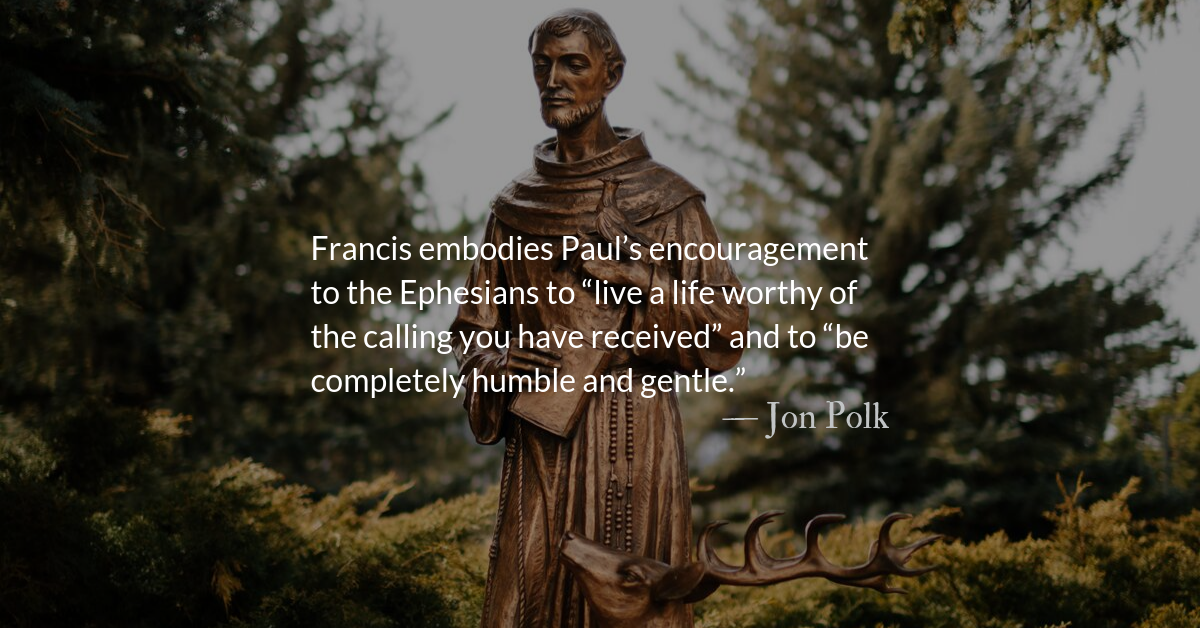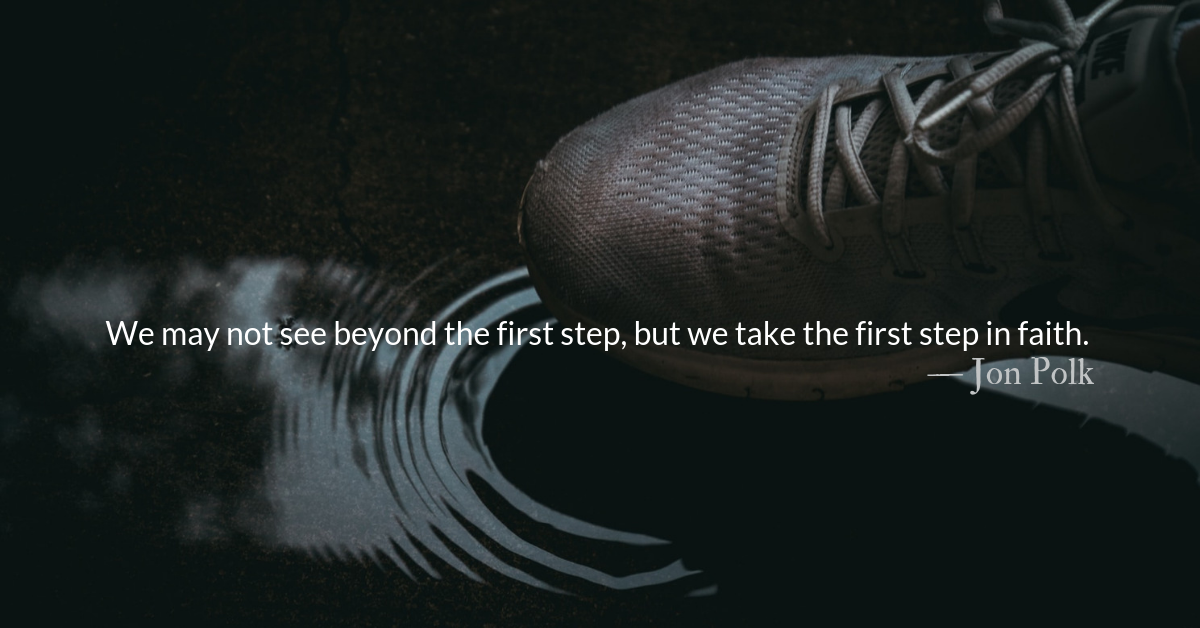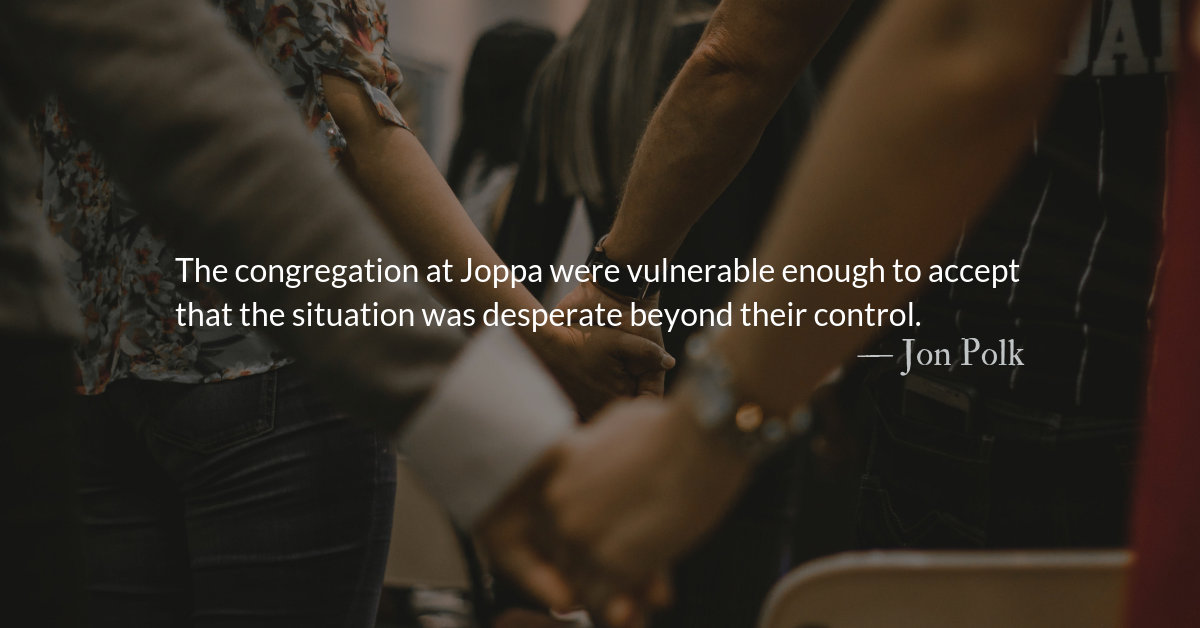Scripture Focus: Philippians 1:3-5, 9-10
I thank my God every time I remember you. In all my prayers for all of you, I always pray with joy because of your partnership in the gospel from the first day until now…And this is my prayer: that your love may abound more and more in knowledge and depth of insight, so that you may be able to discern what is best and may be pure and blameless for the day of Christ…
Reflection: Paul’s Example of Thankfulness
By Jon Polk
Who has been used by God to help you in your walk with Christ? Who has come alongside you during difficult times? Who has helped shape you into the follower of Christ that you are today?
In his letters, Paul frequently gives thanks for other Christians that have been important in his life and he has good reasons to have fond feelings for the church in Philippi.
There, Paul met Lydia and a group of “God-fearing” women praying down by a river. Lydia and her household responded immediately to the Gospel message and she invited Paul to stay in her home. The fledgling Philippian church started by meeting in her house.
There, Paul was imprisoned after incurring the wrath of a slave owner. While he was praying and singing hymns, an earthquake broke open the prison doors! Because Paul chose not to escape, the jailer and his household came to faith.
There, Paul would return to minister at least three times following his initial visit. The church in Philippi began to financially support his traveling ministry. Their support was so significant that Paul would brag about them in a letter to another church.
So it is no surprise that Paul writes about them, “I thank my God every time I remember you.” How many people in your life can you say that about, that you thank God for them every time you think of them? Not only does Paul thank God for them, he also prays for them on a regular and frequent basis.
What exactly does Paul pray for them? He prays that their love increases and grows to overflowing. He prays that as their love grows, so does their relationship with God. He prays that their actions and motives would be pure, driven by this profound love.
When you think about those who have been influential in your life, is this the way you pray for them? Do you pray that they might have so much love that they can’t expend it all? Do you pray that their relationship with God grows and deepens? Do you pray as frequently for your friends as Paul says he does for the Philippians?
Perhaps we should.
So why don’t you take a moment now to thank God for significant people in your life. But don’t stop there. Like Paul did, send them a note letting them know how much you appreciate them. Surprise someone with encouragement today. You’ll be glad you did. And so will they.
Divine Hours Prayer: The Greeting
The Lord lives! Blessed is my Rock! Exalted is the God of my salvation!
Therefore will I extol you among the nations, O Lord, and sing praises to your Name.
– From The Divine Hours: Prayers for Autumn and Wintertime by Phyllis Tickle.
1 Kings 10 (Listen – 4:27)
Phillipians 1 (Listen – 4:03)
Thank You!
Thank you to our donors who support our readers by making it possible to continue The Park Forum devotionals. This year, The Park Forum audiences opened 200,000 free, and ad-free, devotional content. Follow this link to join our donors with a one-time or a monthly gift.
Read more about Paul’s Anti-Anti-Intellectualism
Paul’s intent was that developing faith should not be dependent on the eloquence of a speaker or the artfulness of argumentative tactics.
Read more about Paul’s First Sermon
Paul’s sermon is in response to a call for exhortation. The word Luke uses, paráklēsis, can imply an entreaty for help and is often translated as “comfort”











